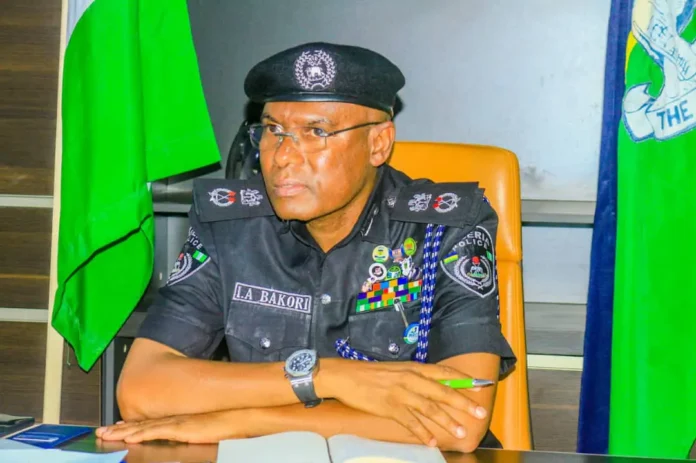The Commissioner of Police in Kano State, Ibrahim Adamu Bakori, has called on traditional rulers across the state to work closely with Divisional Police Officers in their communities to help tackle crimes related to thuggery. He made this appeal during a stakeholders’ meeting that took place on Sunday at the Sani Abacha Indoor Stadium. The event was organized by the Kano State Taskforce Committee on Security and Youth Rehabilitation and brought together several community leaders, security officers, and government representatives.
During his address, Commissioner Bakori said traditional rulers have a strong role to play in protecting their communities from criminal activities, especially those linked to youth violence and thuggery. He encouraged them to pay close attention to the issues affecting their local areas and to maintain regular communication with the police. According to him, understanding local threats and acting early can prevent bigger problems down the line.
He noted that many of the security challenges in the state are linked to young people getting involved in street gangs and violent activities. He believes this situation can improve if traditional rulers and police officers work together. He also called on Divisional Police Officers to stay in close contact with community leaders and not to work in isolation. He explained that building strong partnerships with residents, community elders, and ward heads is a more effective way to fight crime and make streets safer.
Commissioner Bakori expressed gratitude to members of the task force for their continued efforts in keeping the state secure. He said their commitment to addressing problems related to thuggery and youth misbehavior is a big help to the police force. He also praised traditional rulers, especially those serving as ward heads, saying their connection to the people gives them an important role in keeping their communities peaceful.
He added that traditional rulers are in the best position to provide useful information about what’s happening on the ground. Because they live close to the people, they can notice signs of trouble early and help prevent crimes from getting worse. He encouraged them to be part of the solution by staying active, observant, and cooperative with law enforcement teams.
Also speaking at the event was the Deputy Governor of Kano State, Aminu Gwarzo, who explained that the state government is serious about dealing with growing security concerns. He said the creation of the Taskforce Committee on Security and Youth Rehabilitation shows the government’s commitment to finding long-term solutions. Gwarzo explained that security threats, such as thuggery and drug abuse, are not just problems of today; they are changing and growing more complex over time.
He stressed the importance of taking early and effective steps rather than waiting until problems get out of hand. According to him, the state cannot rely on talk alone. Real change requires action from everyone: government officials, police officers, traditional leaders, and the wider community. He urged everyone at the meeting to be open to new ideas and to work together in unity, saying that teamwork is the only way forward if the state is to make lasting progress.
His message was clear: solving security problems must be a shared responsibility. Everyone has a role to play, and everyone must be willing to make real contributions. With more cooperation between traditional rulers and the police, both leaders expressed hope that Kano will become a safer place for all, especially for young people who are often the most vulnerable.
The tone of the meeting was hopeful but firm. While challenges remain, the presence of top officials, community heads, and dedicated security personnel shows that there is a serious push to change things for the better. The message from the police commissioner and the deputy governor was united and strong—peace and stability are within reach, but only if everyone works together with honesty, energy, and trust.

